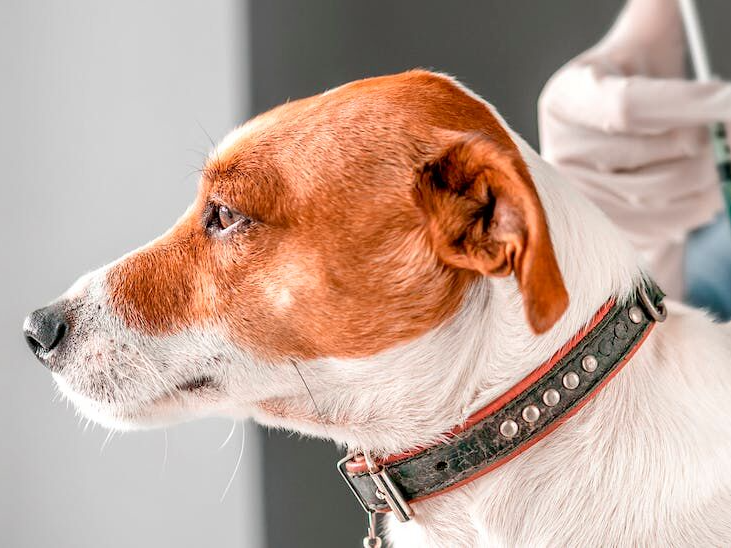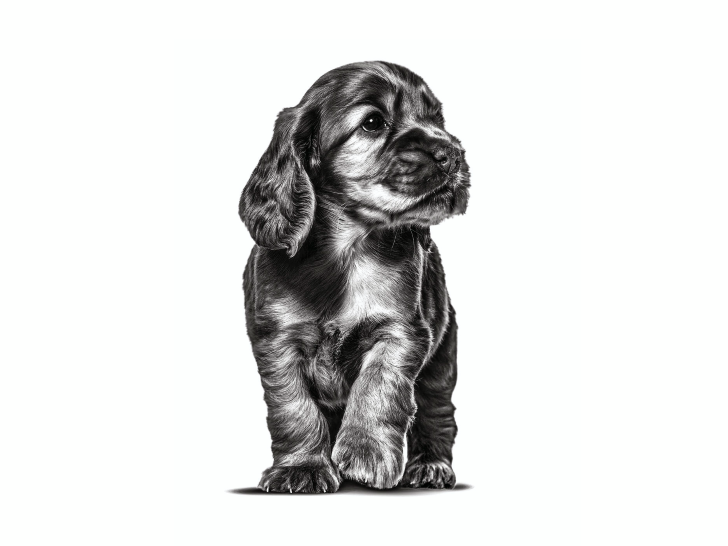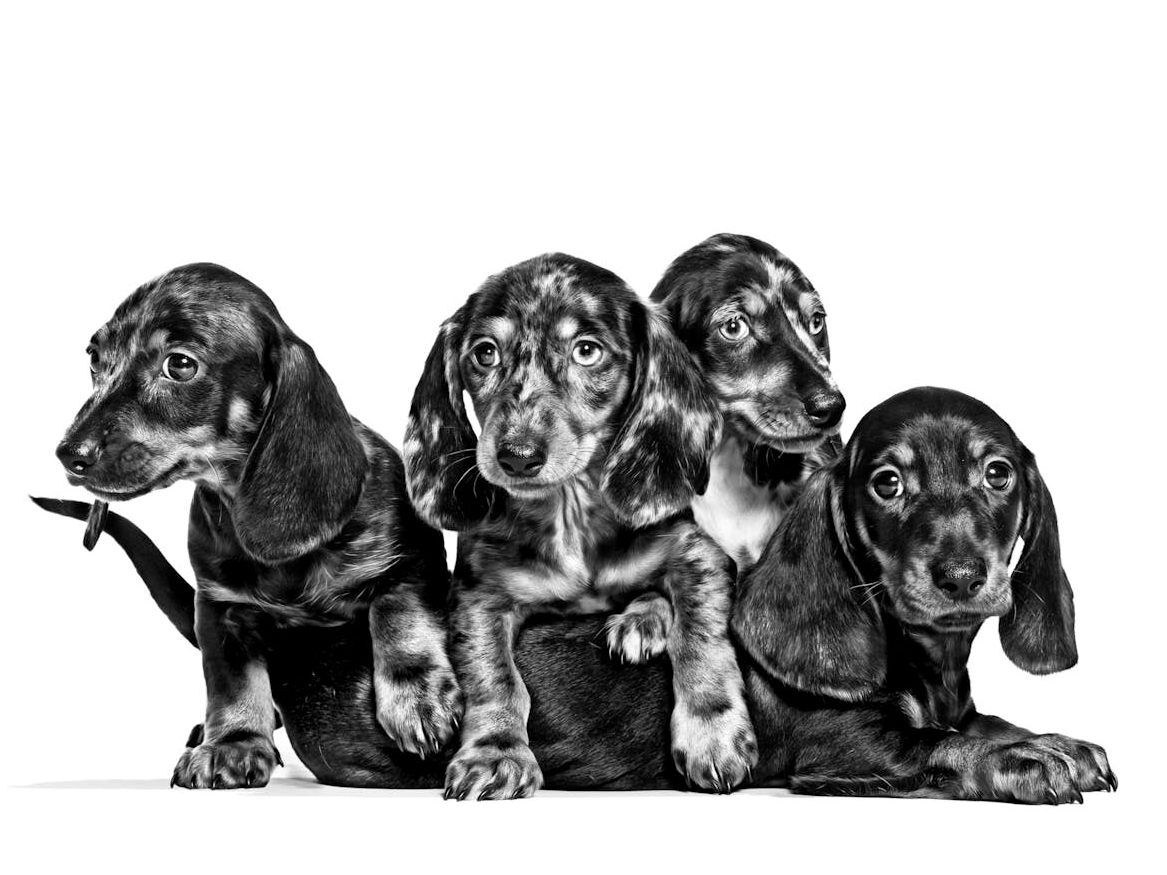
How to socialise a puppy?
Socialising a puppy involves introducing your dog to the world around them. The period between 3 and 14 weeks is considered your puppy's ‘socialisation window’ and is vital for their brain development—and future well-being. Luckily, during this period puppies approach life with more curiosity than fear. Socialised puppies learn what to expect and how to react confidently as they encounter various situations.
Some puppy socialisation basics
During the ‘socialisation window’, your puppy is taking in their world with all their senses. Everything a puppy hears, sees, smells, feels and tastes leaves an impression that lasts a lifetime. Socialising your puppy with positive experiences and patience will help them be a well-balanced, confident adult dog.
Socialisation is a life-long process and there’s no need to rush it. However, young puppies are little sponges and keenly receptive to learning! Socialising them now gives them the confidence they'll need in adulthood.
All puppies have different stamina levels and need downtime to recharge. Introduce new experiences gradually using short periods (10-15 minutes). If your puppy becomes overstimulated, you’ll know. Move them to a quiet place to allow them to calm down.
Introducing your puppy to new people, places and things
While socialisation and familiarisation will most likely have started at the dog breeders’—check to see what was covered before leaving with your puppy—when your dog first comes home, everything is unfamiliar. Vacuums, TVs, loud children, cars and their alarms, sirens, other family members... even other pets can be intimidating. This includes their new routine. Don't plan to introduce everything at once. You and your puppy will have plenty of time together to explore new experiences.
Here is a list of things to consider when socialising your puppy.
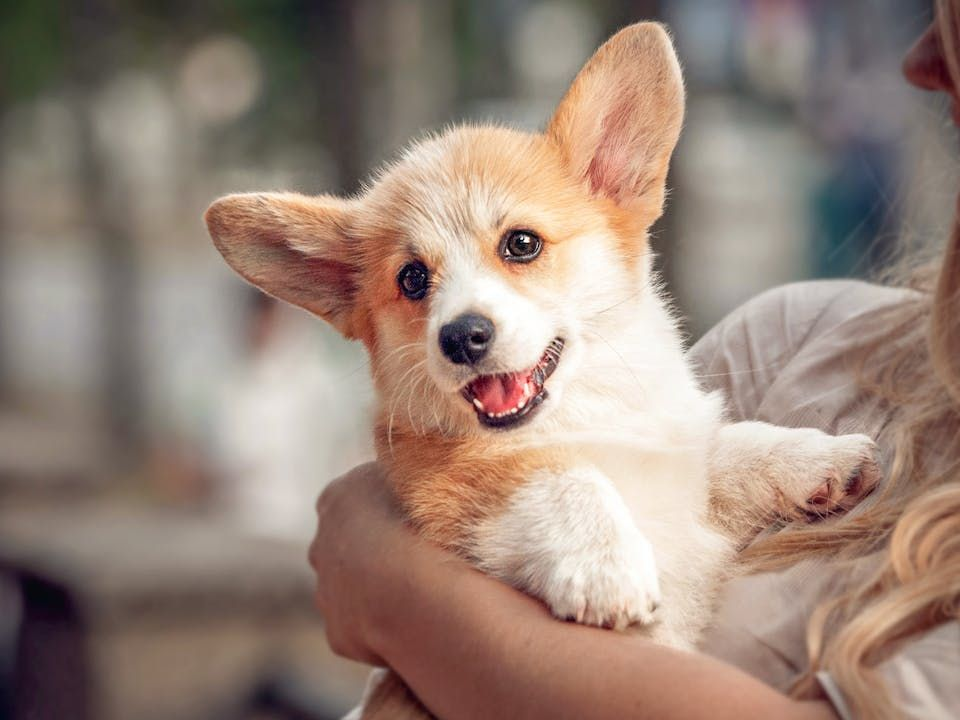
Introduce different people
Introduce your puppy to various kinds of people once their vaccinations are complete. People of different genders, races and ages. Those in uniform and even those wearing hats or sunglasses offer a variety of different experiences for your puppy, including those using wheelchairs or walking canes. They are all part of everyday life.
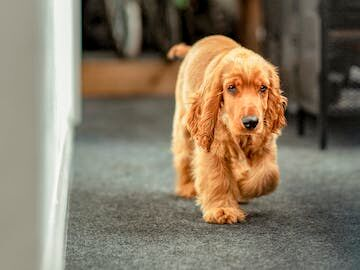
Show your puppy unfamiliar places
Puppies are very social and love to explore new places. Introduce car rides, vet visits, visiting family members' homes, a marketplace, crowded areas, a beach, mountain trails, parks, sidewalks along a busy street, buses or trains, lifts and stairs. These are all interesting environments for your puppy to carefully discover as they grow. Make sure their vaccinations are complete before taking them out into the world. Since your puppy has an immature immune system, avoid any rivers, lakes, ponds or areas with stagnant water.
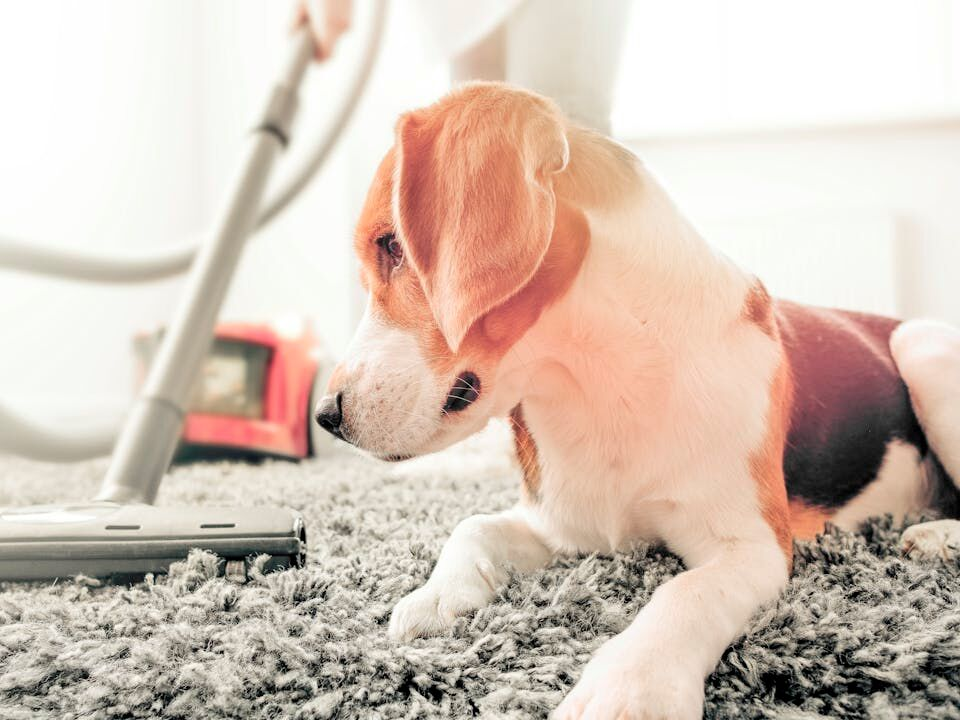
Introduce new sounds
Car alarms, car engines, sirens, doorbells, crowds, loud music and even birds chirping in the garden can give your puppy pause. Be ready to provide comfort if needed.
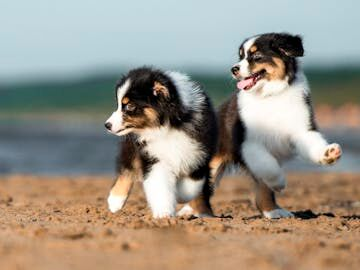
Let your puppy walk on different textures
Carpets feel different from tile or cement. Grass is soft, but rocks and dirt are not. Puppies growing up only on grass may hesitate to walk on other outdoor surfaces.
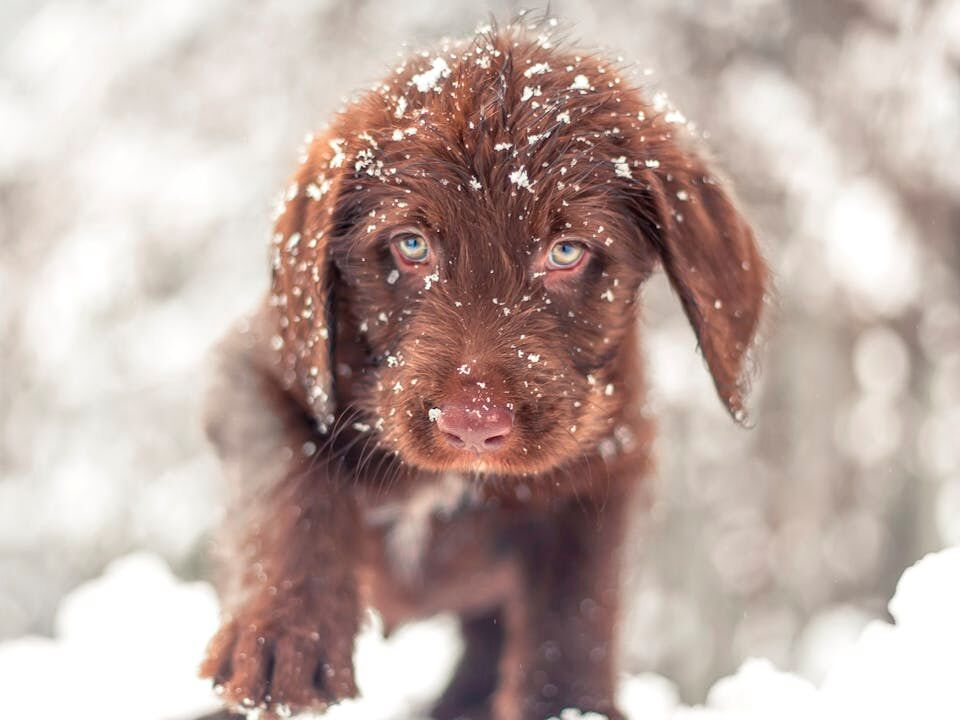
Take your puppy outside to experience several types of weather
Hot tar, cement or pavement can be painful, and snow on the walk can cut tender paws. Thunder and lightning can frighten puppies, as can their first experience with rain or puddles. Your puppy may need protection from harsh elements, such as canine boots or a warm coat.
The more positively perceived experiences your puppy is exposed to early, the less they will react negatively to as adult dogs.
When should I socialise my puppy?
Socialisation is a process that begins when you bring your puppy home. Their window of socialisation is between three and fourteen weeks. So, time is of the essence!
Key stages of puppy socialisation by age
Your puppy socialisation timeline.
Birth to 2 months
Mum and littermates are the primary means of socialisation in the early weeks. Puppies are born without the ability to see or hear, relying on their sense of smell and touch to navigate their world. Around 10-14 days, their eyes and ear canals will open, but it will be several more weeks before those senses reach the level of an adult dog.
Mum teaches manners, while littermates teach each other the difference between biting for play and when biting hurts. Mum's temperament is a big indicator of your pup's socialisation needs. Is she timid, assertive, or content to meet new people? And does she get along well with other animals?
Breeders are a source of important information. Were the puppies raised in the house getting attention and affection from family members?
Was your puppy exposed to children and other animals? How did the children interact with the puppies? How did it go?
From eight weeks, your puppy is mature enough to go home with you.
2 to 3 months
Vaccinations happen during this time. Puppies need protection from disease until their vaccinations are complete around the 16th week. It does vary, however, by breed, even by local authorities—your vet will be able to guide you. This is also when their brain is most receptive and flexible to new experiences. Socialising your puppy before vaccinations are complete means using a carrier or secured pram. That allows your puppy to see the world safely without encountering something they may be vulnerable to.
Insufficiently socialised dogs can develop destructive or anxious behaviour as they get older. So, socialisation has a big impact on your puppy's quality of life.
After 4 months
Your puppy has learned to navigate and enjoy new experiences. New obedience skills too! Socialisation is a lifelong process. The skills your puppy learns along the way help strengthen their ability to face new challenges—and demystify scary things.
Birth to 2 months
Mum and littermates are the primary means of socialisation in the early weeks. Puppies are born without the ability to see or hear, relying on their sense of smell and touch to navigate their world. Around 10-14 days, their eyes and ear canals will open, but it will be several more weeks before those senses reach the level of an adult dog.
Mum teaches manners, while littermates teach each other the difference between biting for play and when biting hurts. Mum's temperament is a big indicator of your pup's socialisation needs. Is she timid, assertive, or content to meet new people? And does she get along well with other animals?
Breeders are a source of important information. Were the puppies raised in the house getting attention and affection from family members?
Was your puppy exposed to children and other animals? How did the children interact with the puppies? How did it go?
From eight weeks, your puppy is mature enough to go home with you.
2 to 3 months
Vaccinations happen during this time. Puppies need protection from disease until their vaccinations are complete around the 16th week. It does vary, however, by breed, even by local authorities—your vet will be able to guide you. This is also when their brain is most receptive and flexible to new experiences. Socialising your puppy before vaccinations are complete means using a carrier or secured pram. That allows your puppy to see the world safely without encountering something they may be vulnerable to.
Insufficiently socialised dogs can develop destructive or anxious behaviour as they get older. So, socialisation has a big impact on your puppy's quality of life.
After 4 months
Your puppy has learned to navigate and enjoy new experiences. New obedience skills too! Socialisation is a lifelong process. The skills your puppy learns along the way help strengthen their ability to face new challenges—and demystify scary things.
Should you wait until after your puppy's 12-week vaccinations?
Socialisation can still take place before your puppy completes their vaccination schedule. You just won't be able to introduce them to unfamiliar animals or have them walk on a lead through your neighbourhood. But you can still socialise them.
Other ways to socialise your puppy before vaccinations
Puppy classes and puppy playdates are great opportunities to socialise your puppy with those their own age and vaccination levels. Watch the fatigue levels of the pups and remove them to quiet areas if they become too stimulated or tired.
Getting your puppy used to your touch is handy for when they are older. Handle their feet (nail trimming), run your fingers around their mouth and teeth (teeth brushing), introduce a toothbrush, give belly rubs, and touch their tail (but don't pull). Be sure to wash your hands before any close contact or grooming.
Two weeks after their last vaccinations, your puppy can meet other dogs safely. Introduce them slowly and watch their body language. Many dogs are eager to play with puppies but can be too rough. Since puppies are newbies to dog language and etiquette, the older dog may tire of the puppy quickly. Your puppy can also get exhausted trying to keep up with a larger or more active dog.
At first, let them play individually to avoid resource aggression or jealousy. Always supervise the play of two or more dogs until your puppy knows them well.
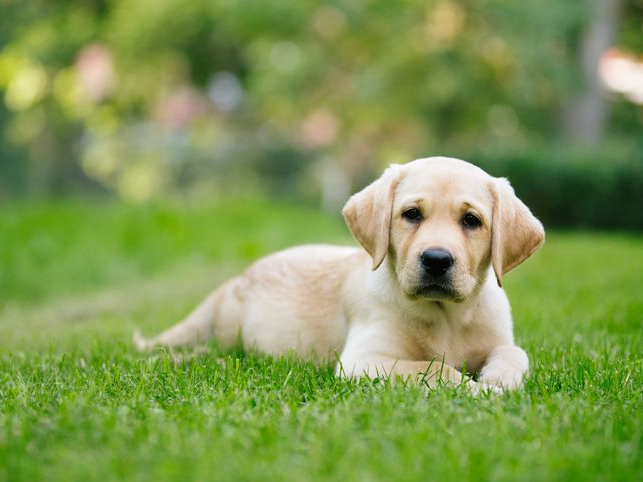
What if your puppy gets frightened by something new?
As much as we prepare our puppies and plan for positive experiences, there will be times they become nervous or frightened. When this happens, determine the trigger and move your puppy to a safer place to calm down. Rethink ways to introduce the trigger to your puppy in a different context that is more comfortable for them. Always have patience with a frightened or reluctant puppy. Respond to fears gently, with praise and affection, because your puppy is taking their cues from you.
The goal of puppy training is a well-balanced, confident adult dog. The most effective way to achieve early socialisation is by using positive reinforcement training methods.
